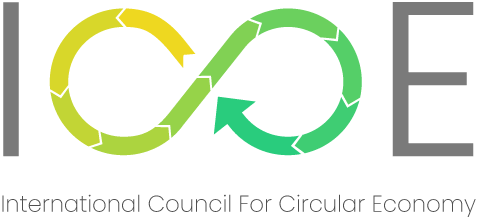Name of CEO/Founder: Tejas Sidnal
State | Country: Karnataka, India
Date of incorporation: 9th December, 2019
Link: https://www.carboncraftdesign.com/
Focus
At Carbon Craft design, we are inspired by the power of humanity to create a better future for our next generation.
Pioneering Carbon-Negative Building Materials
Introduction
The construction industry is one of the largest contributors to global carbon emissions, accounting for 39% of all energy-related CO₂ emissions worldwide. Traditional building materials, such as cement, tiles, and bricks, require energy-intensive production processes that release massive amounts of greenhouse gases.
Additionally, the industry generates vast amounts of Construction and Demolition (C&D) waste, most of which ends up in landfills, further exacerbating environmental degradation.
CarbonCraft Tiles, a pioneering startup, is disrupting the conventional approach to building materials by capturing carbon emissions and integrating them into carbon-negative tiles. With a semi-mechanized, artisan-crafted decentralized Carbon Capture Utilization (CCU)-based technology, the company sequesters CO₂ into industrial waste, creating aesthetically appealing and sustainable products such as tiles, aggregates, bricks, and panels. By leveraging circular economy principles, CarbonCraft Tiles is not only reducing emissions but also ensuring that waste materials are repurposed into valuable resources.
The Environmental Challenge
- High Carbon Footprint of Building Materials The use of traditional construction materials like cement and ceramics significantly contributes to CO₂ emissions due to high-temperature kilning and fossil fuel consumption.
- Unutilized Industrial Waste India alone produces over 150 million tons of C&D waste annually, much of which remains underutilized, leading to environmental pollution.
- Energy-Intensive Manufacturing Processes Conventional tile manufacturing relies on firing kilns at extreme temperatures, leading to excessive carbon emissions and unsustainable resource use.
- Declining Air Quality Due to Carbon Emissions Industrial emissions and urban pollution continue to degrade air quality, contributing to health risks and climate change.
CarbonCraft Tiles’ Innovative Approach
CarbonCraft Tiles has developed a revolutionary low-energy, decentralized CCU technology that integrates carbon emissions into its products. The process follows three essential steps:
- Collecting Carbon and Industrial Waste: Partnering with Direct Air Capture (DAC) technology providers and industrial waste producers to source carbon and byproducts that would otherwise pollute the environment.
- Processing and Standardizing Waste Carbon: The sourced materials undergo a transformation to be repurposed into durable building materials.
- Building with Artisanal Techniques: Leveraging a 200-year-old terrazzo tile-making craft, CarbonCraft Tiles creates customizable, handcrafted tiles that require significantly less energy than conventional methods.
By incorporating 70% non-virgin materials, CarbonCraft Tiles reduces the need for raw material extraction, lowers emissions, and contributes to a zero-waste future in the construction industry.
Alignment with Circular Economy Principles
CarbonCraft Tiles perfectly embodies the Reduce, Reuse, Recycle, and Regenerate model central to the circular economy:
- Waste Reduction: By upcycling industrial waste and capturing carbon, the company prevents pollutants from entering the environment.
- Material Reuse: CarbonCraft Tiles transforms CO₂ emissions and C&D waste into durable, functional building materials.
- Regeneration: By substituting conventional carbon-intensive materials, the company significantly lowers environmental impact and enhances resource efficiency.
- Sustainability in Manufacturing: The tile production process eliminates the need for high-temperature kilning, reducing fossil fuel consumption and making the process highly energy-efficient
Impact and Future Outlook
Each square foot of CarbonCraft Tiles prevents:
- 3.25 kg CO₂eq emissions
- 5 kg of C&D and industrial waste from being discarded
- 2.33 kg of virgin material extraction
Beyond environmental benefits, the company supports five artisan families, preserving traditional craftsmanship while introducing a sustainable alternative to mainstream tile production.
Future Prospects: As demand for carbon-negative construction materials continues to grow, CarbonCraft Tiles aims to scale operations, expand product offerings, and partner with more industries to maximize waste repurposing. By pioneering sustainable architecture, CarbonCraft Tiles is poised to redefine the future of construction, proving that innovation and environmental responsibility can go hand in hand.


